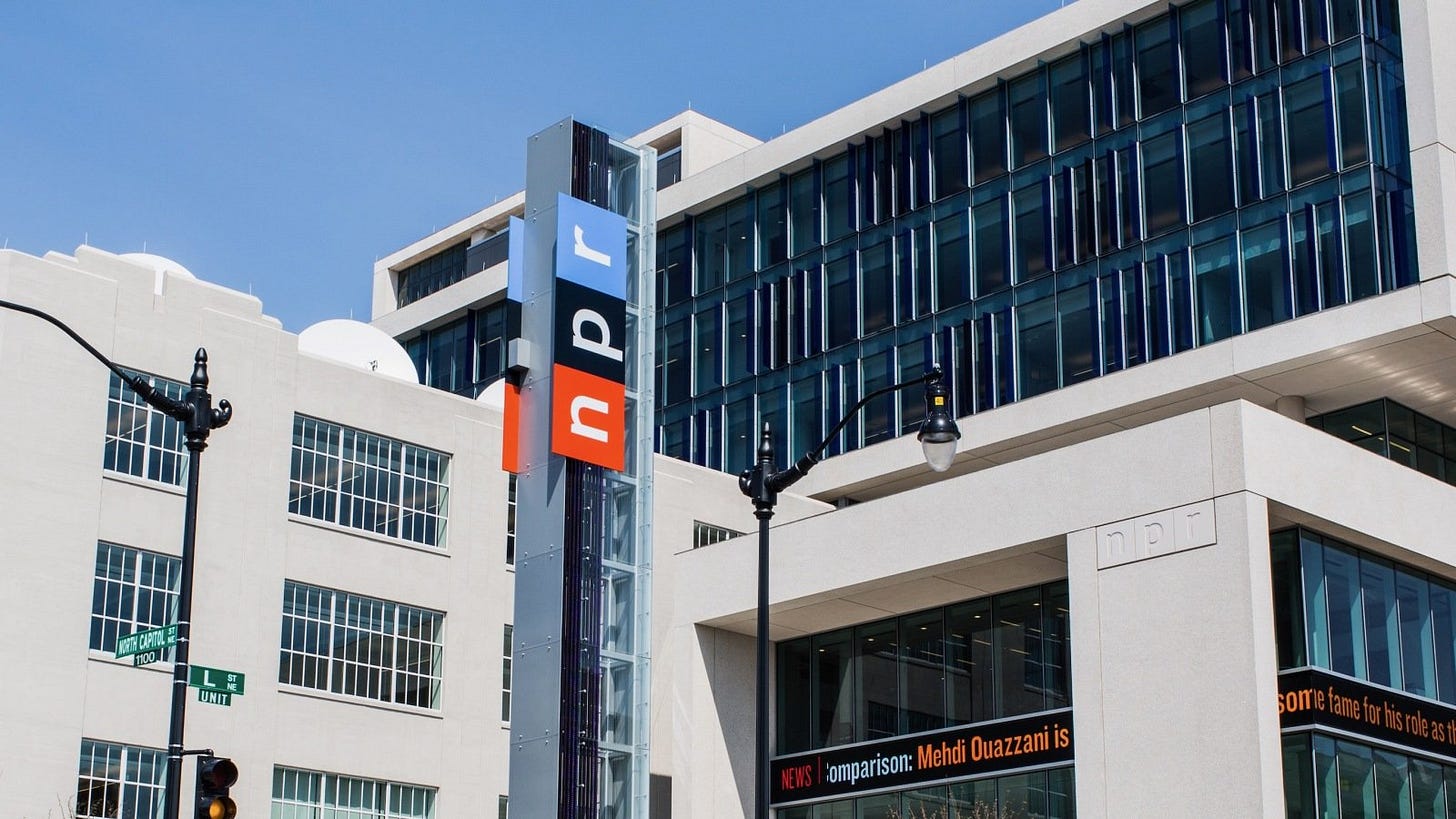It's time to wean NPR from the public dole.
NPR CEO Katherine Maher isn't the answer to any question I can think of about representing the actual diversity of America in taxpayer-funded media. A worksafe rant on it being time to defund NPR.
People occasionally ask me if I ever get writer’s block. Nope. The world is a veritable cornucopia of material for snarksters like me. But even at that, this week I’m on a roll. It’s been a target-rich environment.
As it happens, perhaps the biggest target of them all is also one of my favorite things in the world to lambaste: the arrogant, smug, condescending organization known as NPR, which has served up an eephus pitch so magnificent that it looks like a beach ball floating slowly towards a momentous intersection with the swift arc of my 46-ounce Louisville Slugger.
With recent events unfolding at NPR, it’s a bit difficult to separate parody from reality. Yet, out of this mess may come something useful. It’s high time, I think, that we had a serious discussion of why the public is forced to pay for programming that is not only not very good but relevant to almost no one who’s paying for it.
Although former NPR senior editor Uri Berliner, very generously, I thought, stated that he was not for defunding NPR even upon resigning under pressure this week after excoriating NPR over a lack of viewpoint diversity (and a concomitant decline in listenership) in the Free Press, I’ll do it for him. NPR, a publicly funded media company, represents almost none of the people in this country who pay their bills. And if the new CEO of NPR, Katherine Maher, is to be taken at her word, help is not on the way.
I’ve ranted about NPR several times recently (rants 1 and 2) so today I’ll be succinct. Despite being a generous erstwhile supporter of not one but four NPR affiliates (WUKY, WEKU, KUER, and KISU), I’ve been off the bandwagon for more than a decade. Long before their liberal bias became unbearable, their smug condescension, quite astonishing in light of the fact that they frequently get things wrong, drove me and, dare I say, many others away. I can only stand supercilious lectures delivered in sultry, anechoic monotones (with an EQ bump around 500 Hz) so many times before I want to tear my own ears off to plug the loudspeaker holes in the dashboard of my pickup truck.
My own Science Friday podcasts here on Howlin’ are a swipe at what I consider to be the generally arcane and often unlistenable offerings from NPR. If you think their take on politics and social issues is forged in a small and impermeable bubble, you should get a load of their take on science. On second thought, belay that. I don’t want to be responsible for anyone ripping their own ears off next Friday from 1 to 3pm if they can’t find the off button quickly enough.
Berliner aside, the staff of NPR are evidently proud of the fact that they speak to almost no one outside of a small (and shrinking) cult of aging hippies, self-styled intellectuals, anodyne celebrities, and lefty academics and politicians—the “driveway moments” crowd. In decades, NPR has shown no interest in representing the intellectual, social, and viewpoint diversity of the majority of people whose tax dollars keep them on the air. That’s fine if they are a private company; it’s not so fine if they are conscripting money to promote views that are not representative of the vast majority of people from whom the money is coming.
I haven’t listened to an NPR fund drive for over a decade, but I remember the pitch all too well (I have an entire collection of coffee mugs and tote bags): Only 1% of our funding comes from public funds; the rest is from you, our listeners. Won’t you please help? Now, that is true only if you don’t count the public funds that are funneled to NPR and the Corporation for Public Broadcasting in the form of subscriptions and fees from member stations.
But let’s take NPR at its word. If it’s true that the public is on the hook for only 1% of their operating budget, that ought to be easy to make up in private donations. Hell, that’s bridge money for NPR mega-supporter Bill Gates. If NPR is truly 99% of the way to self-sufficiency, we should encourage them to make it the next even number by way of their listeners and supporters and stay out of the pockets of everyone outside of the “driveway moments” crowd.
NPR, it’s time to let my people go. Go steal from somebody else. You are completely free to be as smug, boorish, inept, and woke as you want, as long as you’re pontificating on your dime, not ours.
Associated Press and Idaho Press Club-winning columnist Martin Hackworth of Pocatello is a physicist, writer, and retired Idaho State University faculty member who now spends his time with family, riding bicycles and motorcycles, and arranging and playing music. Follow him on Twitter @MartinHackworth, on Facebook at facebook.com/martin.hackworth, and on Substack at martinhackworthsubstack.com.


